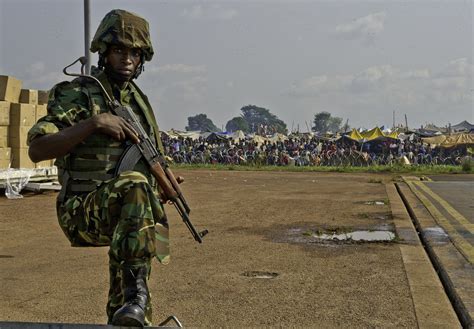
Sub-Saharan Africa was the most conflict-affected region globally in 2023, with over half a dozen conflict regions, according to the International Institute for Strategic Studies’ 2023 Armed Conflict Survey.
The region continued this unfortunate status with conflict concentrated in four adjacent theatres – the Sahel, the Lake Chad Basin, the Great Lakes Region and East Africa, the respected think tank reported. Other conflict areas are the Central African Republic (CAR) and Mozambique. “Most conflicts, the survey has it, “have internal, regional and international elements” contributing to “their intractability”.
What IISS terms “notable developments” last year were reported from six countries. They are Sudan, Ethiopia, Democratic Republic of Congo (DRC), Mali and the Sahel. These include the breakout of conflict in Sudan between the Sudan Armed Forces and the paramilitary Rapid Support Forces (RSF) in April 2023, which engulfed Khartoum, other urban centres and peripheral regions, with critical regional implications; the end of the two-year civil war in Ethiopia with the signing of a peace agreement between the Ethiopian government and the Tigray People’s Liberation Front in November 2022; the re-ignition of inter-state tensions between the Democratic Republic of Congo and Rwanda; the end of France’s Operation Barkhane and its pull-out from Mali and Burkina Faso; and the announced withdrawal of the UN Multidimensional Integrated Stabilisation Mission in Mali, amid a wider drift towards military authoritarianism across the Sahel (with Niger being the latest country experiencing a military coup).
Overall levels of violence in sub-Saharan Africa were “broadly unchanged” with jihadist violence “markedly increased, especially in Somalia and the Sahel”.
“Jihadist groups in the region have been evolving, becoming much more localised and intertwined with community and ethnic conflicts. Their international ties to the Islamic State (ISIS) and al-Qaeda have weakened and connections between insurgent groups now appear to be limited to intra-regional collaborations,” according to the survey.
As for North Africa, the IISS found the conflict in Libya remained at a stalemate, with the country divided between competing governments, while Egypt saw a decrease in fighting.
The spike in food prices has compounded the region’s extreme climate-change vulnerability to create a major food-insecurity crisis, especially for import-dependent countries, notably in North Africa. The region’s ability to tackle these multiple crises will have important implications for regional security dynamics as well as global energy security, the IISS warned.
Globally, the IISS Armed Conflict Survey 2023 found the intensity of armed conflicts is on the rise, marked by a 28 per cent rise in violent events and a 14 pe cent increase in related fatalities.
These trends are reinforced by the growing clout of non-state armed groups (NSAGs) as conflict parties and political actors against a backdrop of declining state legitimacy and reach. According to ICRC estimates, 200 million people live in areas controlled to different degrees by these actors across the world. NSAGs are also becoming more globalised amid international support from third party states and other NSAGs, and increasingly regional and/or global presence, networks, and operations.
These factors have led to a rise in the intensity of global armed conflicts, making conflicts such as the one in Ukraine more protracted in nature. The intractability trend is mirrored in an increasing length of conflicts, presently estimated at around 30 years on average as compared to under 20 in early 1990s, according to the IISS.
The influence of non-Western powers, including Russia, China, Iran, the Gulf countries and Turkey, add to an ongoing trend of democratic backsliding tied to diminishing Western clout and drive geopolitical fragmentation in the Global South.
The increasing number of conflicts have strained international funding and resources to address the mounting humanitarian crises and development issues, the IISS reported.
Looking forward, the IISS noted that the diplomatic deadlock and military stalemate in Ukraine point to a potentially protracted conflict. “The feasibility and sustainability of the country’s reconstruction will be inextricably linked to Kyiv obtaining security guarantees that ensure Ukraine’s future territorial integrity against external aggression.”
The ongoing war between Israel and Hamas in Gaza, triggered by Hamas’ attacks on October 7, 2023, “represents one of the most acute phases of the Israel/Palestinian Territories since its inception,” according to the IISS.
“Tensions and fighting had already intensified in the period under review, notably in the West Bank, against a backdrop of iron-fist policies in the Territories and following a controversial judicial reform by Israel’s extreme right government which has stoked increased social and political polarisation.”
- A Tell report











